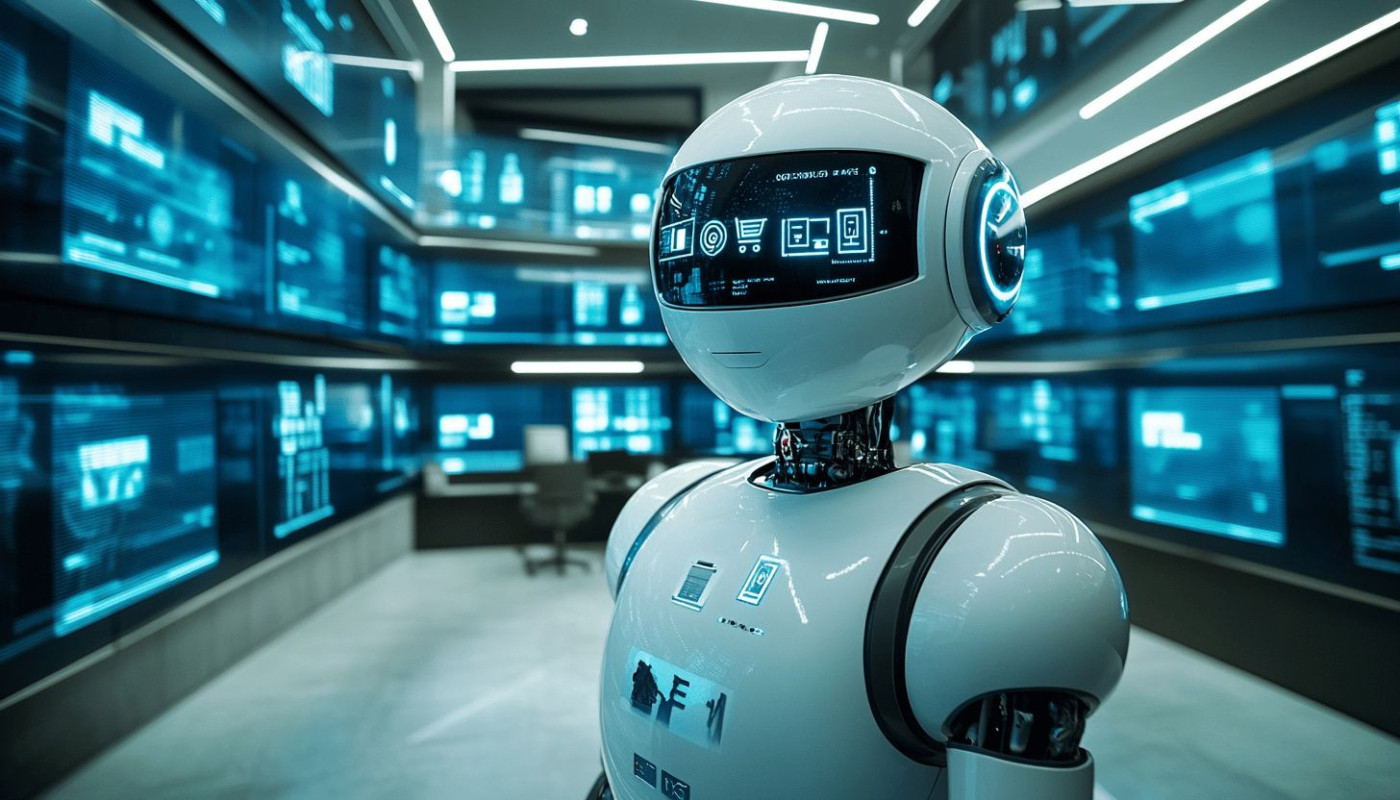Table of contents
In an era where technology perpetually reshapes the landscape of industries, generative AI stands out as a transformative force within the consumer goods sector. This innovative technology is not just altering how products are designed and personalized but is also redefining the interaction between brands and consumers. Venture into the fascinating world of generative AI and uncover how it is revolutionizing the consumer goods industries, offering unprecedented opportunities for creativity and efficiency that promise to redefine the market's future.
Unleashing Creativity in Product Design
In the dynamic realm of consumer goods, companies are constantly seeking innovative methods to captivate their audience. Generative AI emerges as a transformative force, fueling an unprecedented wave of creativity in product design. By harnessing the power of AI algorithms, businesses can now generate a multitude of design prototypes at an impressive pace, vastly expanding their creative horizons. This rapid prototyping not only allows for the exploration of a broader spectrum of ideas but also facilitates swifter iteration cycles, propelling the product development process into a new era.
The crux of this technological marvel lies in machine learning's capability to dissect and understand consumer preferences. These sophisticated algorithms analyze vast datasets, extracting nuanced patterns that influence the creation of designs tailored to the tastes of specific demographics. Consequently, the designs generated by this intelligent process have a higher probability of resonating with their intended audience, sharpening the competitive edge of brands that leverage generative AI.
During the ideation phase, the initial stage where concepts are born, generative AI acts as a catalyst, bringing a diverse array of options to the table. This versatility enables designers and businesses alike to break free from the constraints of traditional methods. The result is not only a suite of products that are finely attuned to consumer desires but also a significant leap in speed and efficiency. In an industry where time to market can be a decisive factor, the integration of generative AI into product design workflows represents a strategic advantage that is reshaping the landscape of consumer goods industries.
Enhancing Consumer Experience through Personalization
Personalization in consumer goods has risen to prominence as a differentiator in the market, with generative AI playing a pivotal role in propelling this trend forward. By harnessing the power of AI-driven systems, companies can now delve into the wealth of individual consumer data to suggest and engineer bespoke products that resonate on a personal level. This hyper-customization ranges from tailored apparel to personalized nutrition plans, effectively heightening the depth of consumer-brand interactions. The successful implementation of such strategies not only enhances consumer experience but also provides a significant competitive advantage.
While the benefits of AI-driven customization are abundant, they bring into sharp focus the significance of data privacy. As consumers entrust their personal details to brands, it is imperative for companies to uphold this trust by ensuring robust data protection measures are in place. The delicate balance between providing tailored offerings and maintaining consumer trust is central to the sustainable growth of personalized product strategies. To learn more about how generative AI is shaping the future of consumer goods and the measures companies are taking to safeguard data privacy, you can find more here.
Optimizing Supply Chains with Predictive Analytics
The introduction of generative AI into supply chain management has been transformative, propelling the logistics sector into an era of unparalleled efficiency and responsiveness. At the heart of this revolution lies predictive analytics, a powerful tool that harnesses AI to accurately anticipate consumer demand and ensure optimal inventory levels. By analyzing vast datasets and identifying consumption patterns, these advanced algorithms enable businesses to reduce surplus stock, significantly trim costs, and diminish waste. The fusion of AI with Internet of Things (IoT) devices further enhances supply chain adaptability, creating a network that swiftly adjusts to purchasing trends and global market shifts.
In the domain of inventory management, the precision offered by predictive analytics translates to a leaner, more cost-effective approach. Businesses are no longer weighed down by the financial strain of overstocking or the risk of stockouts that can lead to lost sales. This level of inventory optimization not only bolsters a company's bottom line but also serves a greater purpose in promoting sustainability. By minimizing excess production and resource use, the environmental impact of supply chain operations is significantly reduced. Moreover, the integration of AI with IoT devices equips logistics networks with real-time tracking capabilities, ensuring that global logistics operate at peak performance and goods are delivered with speed and accuracy. This technological synergy is setting a new standard for supply chain management, with effects that resonate across the consumer goods industry and beyond.
Revolutionizing Marketing with AI-Generated Content
Generative AI is making significant strides in transforming marketing within the consumer goods sector. This technology is at the forefront of creating adaptive, AI-generated content, encompassing advertising copy, vivid images, and dynamic videos that cater to various platforms and diverse audiences. As brands incorporate AI tools, they are witnessing a notable uptick in engagement rates, which is attributed to content that resonates more profoundly with consumers.
One of the standout advantages of utilizing AI in marketing is the ability to perform A/B testing on a vast scale. This facilitates marketers in fine-tuning their strategies with unprecedented precision, thereby optimizing the effectiveness of their campaigns. AI-generated content not only streamlines the creative process but also infuses a level of personalization and relevance that traditional methods struggle to achieve. Consequently, this leads to an acceleration in marketing experimentation, propelling brands towards more sophisticated and successful marketing strategies.
Facilitating Customer Service with Conversational AI
In the realm of consumer goods, the adoption of conversational AI is transforming customer support operations by leaps and bounds. Chatbots and virtual assistants, which are manifestations of sophisticated generative AI technologies, have become pivotal in delivering real-time assistance to consumers. These automated systems engage with customers in a fluid manner, providing personalized support that closely mimics human interaction.
One of the most pronounced benefits of conversational AI is the reduction in response times. Unlike traditional customer service channels that may be hampered by limited working hours and high inquiry volumes, AI-powered tools offer 24/7 availability. This constant presence means that consumer inquiries are addressed promptly, irrespective of the hour, leading to a notable enhancement in the overall customer experience.
As these virtual assistants handle routine queries, there is a significant impact on workforce management. Customer service representatives can shift their focus to complex issues that require human empathy and decision-making skills, optimizing the use of human resources. Moreover, the use of conversational AI can lead to improved customer satisfaction metrics, as the immediacy and relevancy of support provided often exceed traditional service standards. The seamless integration of these AI tools into customer support operations signifies a major leap forward for service quality in the consumer goods industry.
On the same subject

How Hris Software Enhances Compliance And Data Security In Businesses

Understanding The Impact Of Accounting On SME Success

How A Medical Design Agency Revolutionizes Patient Care Through Innovation

How A Medical Design Agency Enhances Healthcare Innovation

How To Measure The ROI Of AI Chatbots In An E-commerce Environment

Investment diversification in emerging economies uncovering hidden potentials

The impact of remote work on urban economies emerging trends and business opportunities

Untapped markets how to identify and capitalize on them

Exploring The Benefits Of A VASP License For Global Crypto Businesses

Exploring The Benefits Of Enhanced Online Store Tools For Small Businesses

